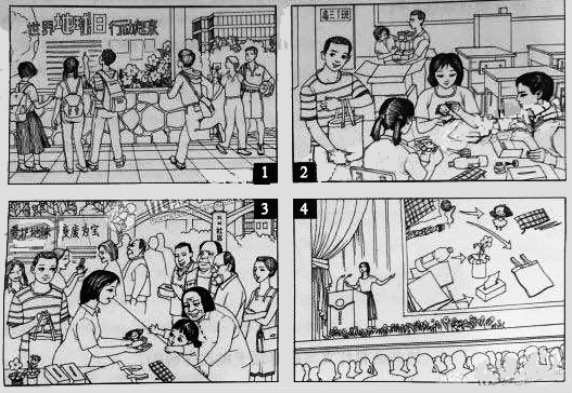题目内容
阅读理解。
Being an astronaut sounds cool, doesn't it?In space, they get to do some pretty amazing things, like floating in zero gravity.
However,there are also plenty of things that astronauts can't do because of their weightless environment, and that's very sad. What's worse, they can't even let their sadness show—because it's impossible to cry in zero gravity.
Of course, astronauts can still produce tears. But crying is much more difficult in space,reported The Atlantic in January. Without gravity, tears don't flow downward out of the eyes like they do here on Earth. This means that when you cry in space, your tears have nowhere to go—they just stick to your eyes.
In May 2011, astronaut Andrew Feustel experienced this during one of his spacewalks.“Tears,” he said, “don't fall off your eye... They just kind of stay there.”
Besides making your vision unclear, this can also cause physical pain. Back on Earth, tears are supposed to bring comfort to the eyes.But that's not the case in space.The space environment dries out astronauts' eyes, and when tears suddenly wet the eyes, it can cause pain rather than comfort. “My right eye is painful like crazy.” Feustel told his teammate during the walk.
Since gravity doesn't work in space, astronauts need some extra help to get rid of the tears.Feustel chose to rub his eyes against his helmet to wipe the tears away. Another choice is to just wait—“When the tears get big enough they simply break free of the eye and float around,”astronaut Ron Parise told The Atlantic.
There are lots of small things—things like crying—that we are so used to on Earth. We usually take them for granted, until they become a problem in a totally different environment,like space. There, astronauts can't talk to each other directly. They also can't eat or drink in normal ways. They can't even burp(打隔), because there is no gravity to hold the food down in their stomach. If they do burp, they just end up throwing up(呕吐) everything in their stomach,according to the UK National Space Center.
Thus, perhaps it's only space explorers who can honestly say:“Gravity, you're the best.”
1.What can we conclude from Paragraphs 2 and 3?
A.Astronauts are unable to feel sad in space.
B.Astronauts produce fewer tears in space.
C.Tears produced in space flow down more slowly.
D.Tears produced in space don't flow downward.
2.What effect do tears have on astronauts?
A.They cause physical pain.
B.They bring comfort to them.
C.They make their vision clearer.
D.They float around and cause trouble.
3.What can the astronaut do to get rid of the tears?
A.Rub his eyes against his helmet to let the tears float forward.
B.Rub his eyes by hand to let the tears float around.
C.Get the tears big enough to fall off of his eyes.
D.Get the tears big enough to break away from his eyes.
4.What's the last but one paragraph mainly about?
A.Suggestions on how astronauts can stay comfortable in space.
B.Other basic things that are difficult to do in space.
C.Why burping is impossible in space.
D.Things that humans can't do without gravity.
 阅读快车系列答案
阅读快车系列答案

